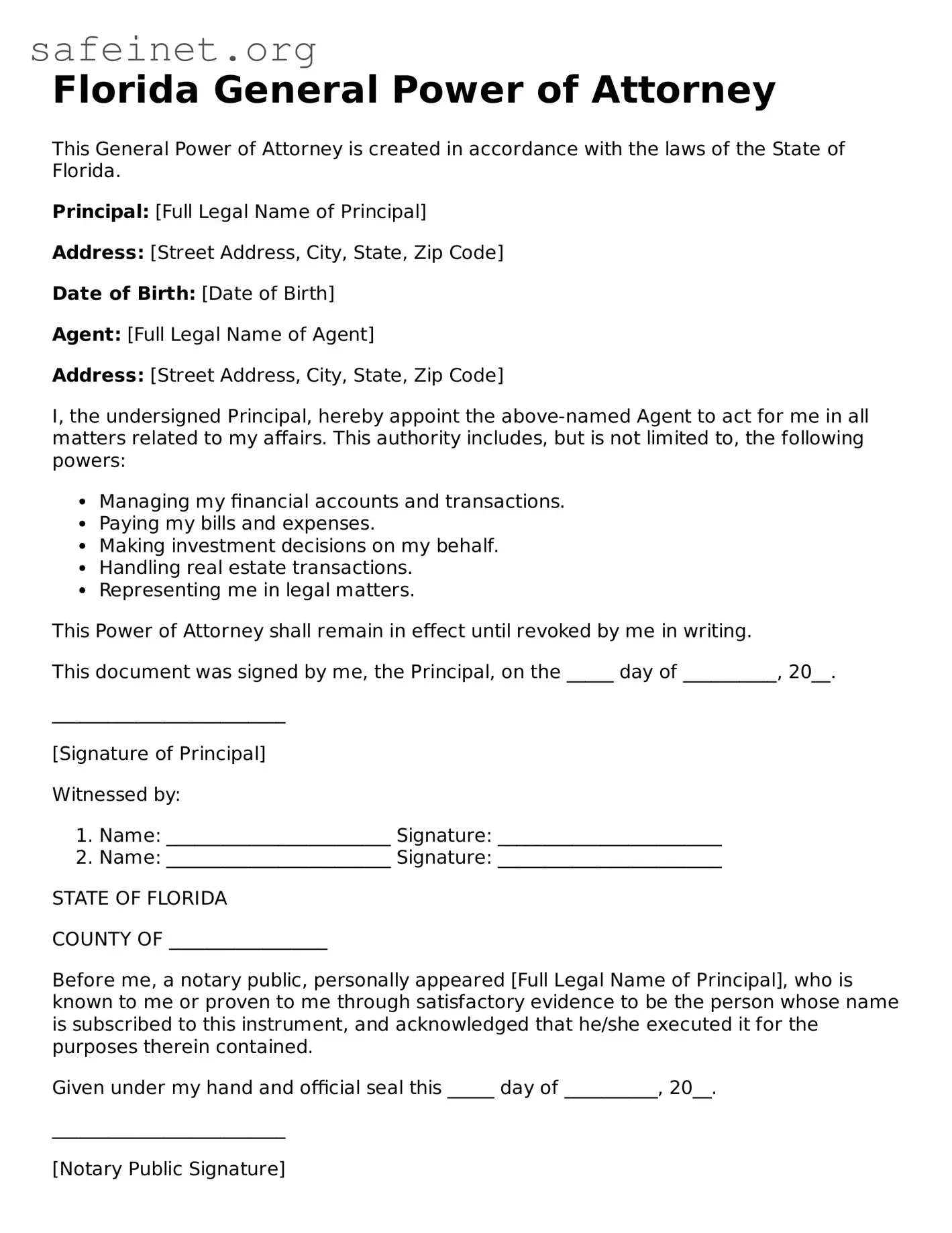Florida General Power of Attorney
This General Power of Attorney is created in accordance with the laws of the State of Florida.
Principal: [Full Legal Name of Principal]
Address: [Street Address, City, State, Zip Code]
Date of Birth: [Date of Birth]
Agent: [Full Legal Name of Agent]
Address: [Street Address, City, State, Zip Code]
I, the undersigned Principal, hereby appoint the above-named Agent to act for me in all matters related to my affairs. This authority includes, but is not limited to, the following powers:
- Managing my financial accounts and transactions.
- Paying my bills and expenses.
- Making investment decisions on my behalf.
- Handling real estate transactions.
- Representing me in legal matters.
This Power of Attorney shall remain in effect until revoked by me in writing.
This document was signed by me, the Principal, on the _____ day of __________, 20__.
_________________________
[Signature of Principal]
Witnessed by:
- Name: ________________________ Signature: ________________________
- Name: ________________________ Signature: ________________________
STATE OF FLORIDA
COUNTY OF _________________
Before me, a notary public, personally appeared [Full Legal Name of Principal], who is known to me or proven to me through satisfactory evidence to be the person whose name is subscribed to this instrument, and acknowledged that he/she executed it for the purposes therein contained.
Given under my hand and official seal this _____ day of __________, 20__.
_________________________
[Notary Public Signature]
My Commission Expires: ____________
